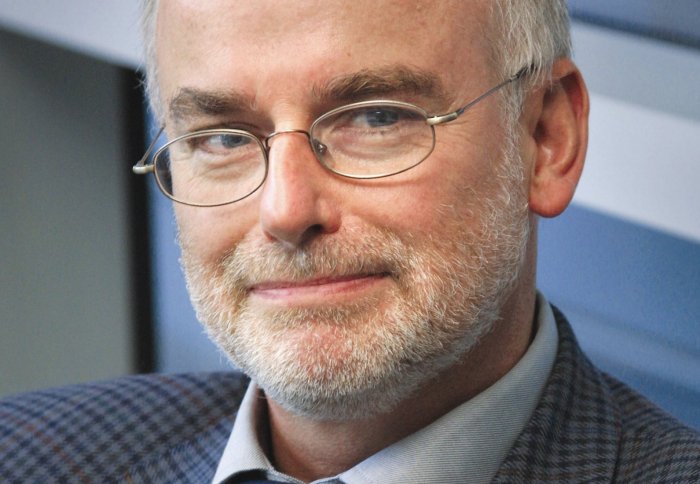Imperial academic talks about his new leadership role in security science

Professor Bill Lee talks about his appointment as Co-Director of the Institute for Security Science and Technology.
Professor Lee's research in ceramic science has been recognised by several prestigious awards, and in 2012 he was made a Fellow of the Royal Academy of Engineering. He has published over 400 peer-reviewed papers, has been awarded research grants totalling more than £55 million, and has supervised 61 PhD students to successful completion.
Since obtaining a DPhil from Oxford University he has held many academic positions, both in the UK and U.S.A. Previous positions at Imperial include Director of the Centre for Nuclear Engineering and Director of the Centre for Advanced Structural Ceramics.
Bill also has significant experience working with policymakers. He was Deputy Chair of the Government advisory Committee on Radioactive Waste Management from 2007-2013, has acted as special advisor on nuclear to the House of Lords Science and Technology Committee (2013) and is an IAEA Technical Expert.
We caught-up with Professor Lee to hear about his new appointment.
What attracted you to joining the ISST?
The ISST’s mission very much chimes with my belief in the importance of interdisciplinary research and engagement with government and industry to meet grand challenges.
Recent events, such as the impact on the NHS of a cyberattack and the terrorist attacks in London, highlight the importance of security and the need to have world-leading research in this area. While my research isn’t directly in security, I’m very interested in the issues and have previously worked with security & defence organisations, such as DSTL and AWE.
Finally, I’m confident I can bring lots to the ISST from my previous roles and help increase the impact of the Institute.
Is there anything you’re particularly looking forward to?
I’m keen to explore how we can develop our educational offer, in particular graduate (MSc and PhD) training. I previously set up and ran the Centre for Doctoral Training in Nuclear Energy at Imperial, and saw how it was a potent way to build a vibrant community of researchers and professionals, both at Imperial and beyond. I think this could really benefit the Institute.
I’m also looking forward to new research challenges directly in the security space. I’m keen to develop some projects in the CBRN (chemical, biological, radiological and nuclear) area.
Security is sometimes a controversial subject, how important is it for the academic community to engage in non-academic discussions?
I think it’s essential to not shy away from conversations about security issues, and I’m happy that engagement with non-academic audiences is one of the core activities of the ISST.
I always encourage researchers to undertake media training and be confident in talking to the press. Academics are generally well trusted by both policymakers and the wider public, and can help set the record straight.
Throughout my career I’ve been very engaged with policymakers, often on controversial topics, and I look forward to continuing this in the security area. I think it’s a responsibility of academics to get out there and bring the technical angle to government policy where possible, especially at Imperial College, given our proximity to Westminster.
Outside of the ISST what will you be up to?
I’ll be spending 50% of my working time in the ISST, with the other 50% dedicated to my ceramics and nuclear research. I’m currently the President of the American Ceramic Society which also keeps me busy.
Out in the real world I’m an avid Portsmouth Football Club fan and keen gardener, and DIY-er.
Article text (excluding photos or graphics) © Imperial College London.
Photos and graphics subject to third party copyright used with permission or © Imperial College London.
Reporter
Max Swinscow-Hall
Institute for Security Science & Technology